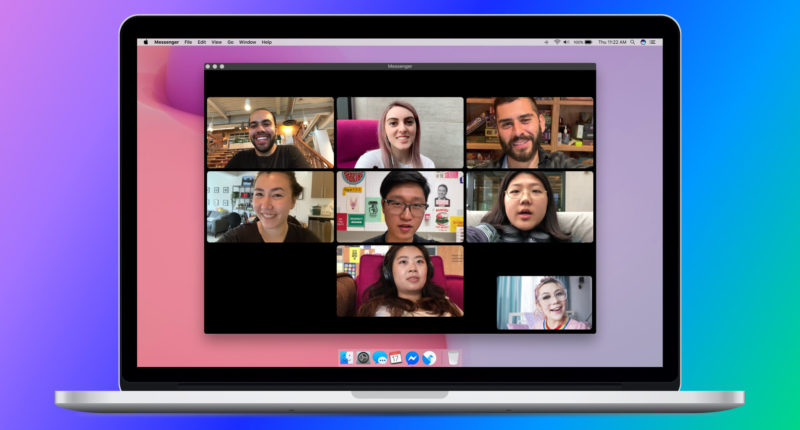To tackle the influx of traffic and make it more convenient for users to operate, Facebook has announced Desktop and Mac versions of its Messenger app. Messenger, which is Facebook’s other messaging app (since it acquired WhatsApp) was launched 9 years ago, and came with an app for desktop in 2011, which was later scrapped.
After seeing a 100% increase in desktop browser audio and video calling, Facebook decided to give the people what they wanted and launched the desktop and Mac version of its messaging app today. The announcement came from Facebook CEO Mark Zuckerberg himself, in the form of a Facebook post. There is also a blog post from VP of messenger, Stan Chudnovsky, regarding the announcement.
The post read,”We’re all looking for more ways to be together even while we’re physically apart. So today we’re launching native Messenger apps for MacOS and Windows. Group video calls and messages on our apps have surged — Messenger use on desktop has more than doubled in the last month. These new native apps will make the experience a lot better. I hope you enjoy!”
The blog by Stan mentioned the ease of video calling on a bigger screen, how the app will make it easier for people to connect on the platform and make chatting easier. In short, the app version of Messenger will provide the same functionality that the browser version offered, with added ease. The main aim is to optimise chatting on the app, offering users a bypass to shifting between tabs.
The app was originally announced last year at the company’s F8 conference. However, since the event has been cancelled this year due to coronavirus, Facebook decided to launch the application with a simple announcement.
Messenger is competing with the likes of Zoom, a video conferencing app which can connect hundreds of users simultaneously. Then there is ‘Hnagouts+’ from Google, which the company recently announced of providign free of cost small businesses, most affected by COVID-19 and subsequent global lockdowns. Zoom in particular, has been on a roll, largely due to almost all of global workforce working from home. The app just announced today that it has crossed a staggering 200 million daily video call users, but is still facing scrutiny due to security concerns. Messenger’s only hope is to utilise those concerns, and expand its video calling feature, if it wants to stay in the game.
